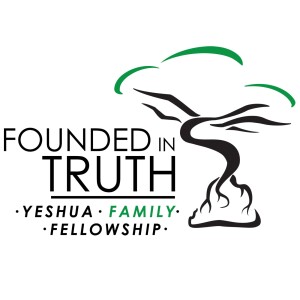
- Podcast Features
-
Monetization
-
Ads Marketplace
Join Ads Marketplace to earn through podcast sponsorships.
-
PodAds
Manage your ads with dynamic ad insertion capability.
-
Apple Podcasts Subscriptions Integration
Monetize with Apple Podcasts Subscriptions via Podbean.
-
Live Streaming
Earn rewards and recurring income from Fan Club membership.
-
Ads Marketplace
- Podbean App
-
Help and Support
-
Help Center
Get the answers and support you need.
-
Podbean Academy
Resources and guides to launch, grow, and monetize podcast.
-
Podbean Blog
Stay updated with the latest podcasting tips and trends.
-
What’s New
Check out our newest and recently released features!
-
Podcasting Smarter
Podcast interviews, best practices, and helpful tips.
-
Help Center
-
Popular Topics
-
How to Start a Podcast
The step-by-step guide to start your own podcast.
-
How to Start a Live Podcast
Create the best live podcast and engage your audience.
-
How to Monetize a Podcast
Tips on making the decision to monetize your podcast.
-
How to Promote Your Podcast
The best ways to get more eyes and ears on your podcast.
-
Podcast Advertising 101
Everything you need to know about podcast advertising.
-
Mobile Podcast Recording Guide
The ultimate guide to recording a podcast on your phone.
-
How to Use Group Recording
Steps to set up and use group recording in the Podbean app.
-
How to Start a Podcast
-
Podcasting
- Podcast Features
-
Monetization
-
Ads Marketplace
Join Ads Marketplace to earn through podcast sponsorships.
-
PodAds
Manage your ads with dynamic ad insertion capability.
-
Apple Podcasts Subscriptions Integration
Monetize with Apple Podcasts Subscriptions via Podbean.
-
Live Streaming
Earn rewards and recurring income from Fan Club membership.
-
Ads Marketplace
- Podbean App
- Advertisers
- Enterprise
- Pricing
-
Resources
-
Help and Support
-
Help Center
Get the answers and support you need.
-
Podbean Academy
Resources and guides to launch, grow, and monetize podcast.
-
Podbean Blog
Stay updated with the latest podcasting tips and trends.
-
What’s New
Check out our newest and recently released features!
-
Podcasting Smarter
Podcast interviews, best practices, and helpful tips.
-
Help Center
-
Popular Topics
-
How to Start a Podcast
The step-by-step guide to start your own podcast.
-
How to Start a Live Podcast
Create the best live podcast and engage your audience.
-
How to Monetize a Podcast
Tips on making the decision to monetize your podcast.
-
How to Promote Your Podcast
The best ways to get more eyes and ears on your podcast.
-
Podcast Advertising 101
Everything you need to know about podcast advertising.
-
Mobile Podcast Recording Guide
The ultimate guide to recording a podcast on your phone.
-
How to Use Group Recording
Steps to set up and use group recording in the Podbean app.
-
How to Start a Podcast
-
Help and Support
- Discover

Founded in Truth Fellowship - Bible Teachings and Sermons
Religion & Spirituality:Christianity

In a powerful Bible teaching from Founded in Truth Fellowship, Matthew Vander Els addresses the pervasive issue of hatred and the critical importance of love for followers of Jesus Christ. He begins by acknowledging a universal longing for community rooted in truth and love, where individuals can worship God. However, he quickly delves into a challenging topic: the presence of hatred, not just towards others but within ourselves.
Vander Els confronts the tendency to soften the word "hate" by saying we merely "dislike" someone, suggesting that this is often a justification for a lack of love. He defines hatred, in a Christian context, as an inability or intentional ceasing to engulf someone with love. To understand this definition, he turns to the well-known passage in 1 Corinthians 13:4-8, where the Apostle Paul describes love as patient, kind, not envious, not boastful, not proud, not dishonoring, not self-seeking, not easily angered, keeping no record of wrongs, not delighting in evil but rejoicing in the truth, always protecting, always trusting, always hoping, always persevering, and never failing. This, Vander Els argues, is the standard of Christ-like love that should emanate from believers. Choosing to exclude anyone from this kind of love, he asserts, is what he calls hatred.
Expanding on this, Vander Els references Matthew 24:12, where Jesus speaks of a time when, due to increased wickedness, the love of most will grow cold. Here, Jesus equates a lack of vital love towards others with wickedness. This stark assessment underscores the seriousness of failing to love. Furthermore, 1 John 3:14-15 states that those who love their brothers and sisters have passed from death to life, while those who do not love remain in death, and anyone who hates a brother or sister is considered a murderer, lacking eternal life. This is a powerful indictment, highlighting the inseparable link between love for others and a genuine relationship with God through Jesus.
The teaching then tackles the common justifications for hatred. In today's polarized society, political differences often become breeding grounds for animosity. Vander Els uses hypothetical examples of Christians on opposing sides of the political spectrum, illustrating how easily one can judge and harbor hatred towards those with different political views, assuming they are not genuinely Christian or are intentionally opposing God's will. He points out the flawed logic of thinking that if someone supports a particular political figure or party, they must hate Christians or hold evil intentions, thus justifying reciprocal hatred.
Vander Els delves into the uncomfortable truth that we often love to hate. Our culture, he suggests, can even teach us to do so, as it can feel good to be angry and to react negatively towards those we dislike. This feeling of satisfaction comes from the avoidance of absorbing the negativity of the world; instead of being a barrier to hatred, we join in. He poignantly asks if we don't experience a degree of satisfaction when someone we dislike faces hardship.
For more Bible Teachings, click the link.
Application for Everyday Life- Examine your heart for hidden hatred: Honestly assess if there are individuals or groups towards whom you harbor negative feelings or intentionally withhold love.
- Practice the definition of love from 1 Corinthians 13: In your interactions, strive to be patient, kind, unselfish, and forgiving.
- Challenge justifications for dislike: When you find yourself rationalizing negative feelings towards someone, especially based on political or differing views, remember Jesus' call to love enemies.
- Be aware of the temptation to enjoy others' misfortunes: Reflect on your reactions when someone you dislike faces difficulties, and consciously choose compassion over satisfaction.
- Embrace your role as an ambassador of Christ: Recognize that you are called to show God's love and offer reconciliation to everyone, regardless of their background or beliefs.
- Pray for your enemies: Actively follow Jesus' command to pray for those who mistreat or persecute you.
- Seek to understand differing perspectives: Instead of immediately judging those with opposing views, try to understand their perspective with empathy.
- Respond to negativity with kindness: When faced with hostility or offense, choose to respond with love and avoid repaying evil with evil.
- Focus on hating evil, not individuals: Distinguish between harmful actions and the inherent worth of every person as someone Christ died for.
- Remember the "new creation" reality: See others through the lens of Christ's redemptive work, recognizing the potential for transformation in everyone.
- 1 Corinthians 13:4-8 - biblehub.com/1_corinthians/13-4.htm
- Matthew 24:12 - biblehub.com/matthew/24-12.htm
- 1 John 3:14-15 - biblehub.com/1_john/3-14.htm
- Matthew 28 - biblehub.com/matthew/28.htm
- Matthew 5-7 - biblehub.com/matthew/5.htm, biblehub.com/matthew/6.htm, biblehub.com/matthew/7.htm
- The Bible by various authors
Note: This article contains affiliate links.
More Episodes
 2025-03-16
2025-03-16
 2
2
 2024-04-20
2024-04-20
 2022-08-21
2022-08-21
 4
4
 2022-08-13
2022-08-13
 7
7
 2022-07-30
2022-07-30
 2
2
 2022-07-09
2022-07-09
 3
3
 2022-06-25
2022-06-25
 2
2
 2022-06-18
2022-06-18
 2
2
 2022-06-11
2022-06-11
 2
2
 2022-04-23
2022-04-23
 2
2
 2022-04-16
2022-04-16
 2
2
Create your
podcast in
minutes
- Full-featured podcast site
- Unlimited storage and bandwidth
- Comprehensive podcast stats
- Distribute to Apple Podcasts, Spotify, and more
- Make money with your podcast
It is Free
- Privacy Policy
- Cookie Policy
- Terms of Use
- Consent Preferences
- Copyright © 2015-2025 Podbean.com



